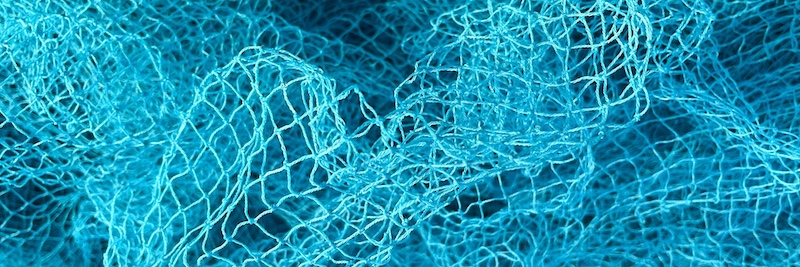In the heart of Normandy, where fishing and industry have long shaped the regional economy, NaturePlast is using artificial intelligence and digital innovation to build a more sustainable future.
The Caen-based company is proving that even traditional sectors like fishing and construction can benefit from cutting-edge technology by applying advanced digital modeling and AI-based tools from the EU-funded DiMAT project to design stronger, greener, and more sustainable materials faster than ever before.
NaturePlast, a French leader in bio-based and biodegradable plastics, is developing new-generation bioplastic formulations for the production of technical filaments used in fishing and construction nets.
These filaments must achieve precise performance characteristics, from stretchability and heat resistance to fluidity and cooling rate, which are difficult to deliver using current biopolymers. Traditionally, this development process involves numerous costly and time-consuming tests.
Now, by using DiMAT’s digital intelligence suite, NaturePlast can model and predict material behavior virtually, reducing physical testing, cutting waste, and speeding up innovation.
“It’s quite poetic in a way,” said Pauline Moreau, materials development engineer at NaturePlast. “We’re using advanced AI tools to make better fishing nets, proof that digitalization isn’t just for high-tech industries. It can help even the most traditional sectors become cleaner, smarter, and more competitive.”
Through this collaboration, NaturePlast is showing how digitalization and sustainability go hand in hand.
By integrating DiMAT’s data-driven optimization tools into its R&D workflow, the company has reduced its development time, raw material use, and energy consumption, all while improving product performance.
The result is smarter innovation that benefits both business and the environment.
Beyond its technological impact, NaturePlast’s success has important regional and national significance.
Based in Caen, the company contributes to local job creation and skills development in advanced manufacturing, strengthening Normandy’s reputation as a hub for sustainable materials and industrial innovation.
Its work directly supports France’s national priorities for reindustrialization, decarbonization, and digital transformation.
The DiMAT project also integrates life-cycle assessment tools into the design process, helping manufacturers measure and reduce environmental impact from the earliest stages of product development.
This means companies like NaturePlast can meet regulatory requirements, stay ahead of market trends, and win contracts that increasingly demand proof of sustainability.
“What we’re doing in Caen can be replicated anywhere in France or in Europe,” added Moreau. “The same digital tools can help companies across packaging, construction, and mobility innovate faster and more responsibly and that’s good news for the French economy.”
Companies can explore DiMAT’s tools and see how digitalization accelerates greener innovation via the DiMAT Solutions Hub.
The project allows companies to assess how digital technologies will impact on production processes and outputs before having to make the investments to install the new technology.

